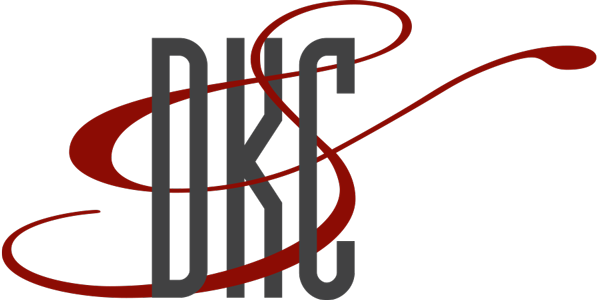One Big Beautiful Bill Act: Key Tax Changes in 2025
The “One Big Beautiful Bill Act” (OBBBA), was signed into law by President Trump on July 4, 2025. Its core objectives include making permanent key tax cuts from the Tax Cuts and Jobs Act (TCJA) and introducing new tax breaks for individuals and businesses. In addition, the bill repeals the clean energy tax credits from the 2022 Inflation Reduction Act. Below is a broad overview of changes that may impact you going forward.
I. Changes for Individuals
The OBBBA and IRS inflation adjustments bring several important changes for individual taxpayers:
- Income Tax Brackets: The OBBBA makes the current income tax rates established by the TCJA permanent. For 2025, income thresholds for each marginal rate are adjusted upwards for inflation.
- Standard Deduction: The OBBBA makes the increased standard deduction permanent and will adjust with inflation.
- Charitable Contributions with Standard Deduction: Starting in 2026, taxpayers claiming the standard deduction can deduct up to $1,000 of cash contributions made to charitable organizations for single filers ($2,000 for joint filers).
- Charitable Contributions Itemized Deduction Limitation: Starting with the 2026 tax year, taxpayers claiming the itemized deduction will be subject to a 0.5% of AGI reduction to charitable contributions.
- State and Local Taxes (SALT): The SALT deduction cap will temporarily increase from $10,000 to $40,000 through December 31, 2029, with annual inflation adjustments. It phases out for MAGI exceeding $500,000 but not below $10,000, reverting to $10,000 in 2030.
- Child Tax Credit (CTC): The CTC is permanently increased to $2,200 per qualifying child for tax year 2025, indexed for inflation after 2026.
- New Temporary Deductions Introduced by OBBBA (2025-2028)
o No Tax on Tips: Up to $25,000 above-the-line deduction for cash tips, phasing out with MAGI over $150,000 (single) or $300,000 (joint).
o No Tax on Overtime: Up to $12,500 ($25,000 for joint) above-the-line deduction for qualified overtime, phasing out with MAGI over $150,000 (single) or $300,000 (joint).
o Auto Loan Interest: Up to $10,000 above-the-line deduction for post-2024 loan interest on new U.S.-assembled vehicles, for single taxpayers with MAGI of $100,000 or less ($200,000 for joint).
o Senior Tax Deduction: An additional $6,000 deduction is available for individuals aged 65 and older, phasing out at higher AGIs exceeding $75,000 for single filers ($150,000 for joint)
- Estate & Gift Tax Exclusions: The annual gift exclusion increases to $19,000 per recipient for 2025. The OBBBA permanently increases the Estate Tax Exemption to $15,000,000 per individual after December 31, 2025, indexed for inflation after 2026.
- Trump Accounts for Minors: Investment account providing $1,000 available for each child born from beginning of 2025 through the end of 2028. Allows up to $5,000 contribution per year until the child is 18 years old.
- Clean Energy Credits:
- EV tax credits to phase out by September 30, 2025.
- EV charging unit tax credits to phase out by June 30, 2026.
- Energy Efficient Home Improvement and Residential Clean Energy Credits (Home Solar Credit) repealed for expenditures made after December 31, 2025.
- 2% Miscellaneous Itemized Deduction: Permanently disallowed, including casualty and theft losses (except federally declared disaster areas).
II. Changes for Businesses
The OBBBA introduces substantial permanent changes to business taxation:
- Qualified Business Income (QBI) Deduction (Section 199A): The QBI deduction (Section 199A) is made a permanent feature of the tax code, remaining at 20% for eligible non-corporate taxpayers.
- Bonus Depreciation & Section 179 Expensing: Bonus Depreciation is permanently extended, allowing 100% immediate expense of eligible business property acquired after January 19, 2025. Section 179 expense limits increase to $2.5 million, with a phase-out at $4.0 million, adjusted annually for inflation.
- Research & Development (R&D) Expenditures: Taxpayers can now immediately deduct domestic R&D expenditures for tax years beginning after December 31, 2024. Small Business Taxpayers (gross receipts of $31 million or less) can retroactively deduct previously capitalized domestic R&D expenditures for tax years after December 31, 2021. All taxpayers can elect to amortize their remaining unamortized R&D expenses (paid or incurred from 2022-2024) over either a one- or two-year period.
- Business Interest Limitation (Section 163(j)): The OBBBA permanently modifies the calculation of Adjusted Taxable Income (ATI) for the 30% business interest limitation, reverting to a more favorable EBITDA-based limitation for tax years beginning after December 31, 2024.
- Qualified Small Business Stock (QSBS) (Section 1202): The exclusion amount increases from $10 million to $15 million, and the asset threshold from $50 million to $75 million, indexed for inflation after 2026.
- The OBBBA modifies the gain exclusion rules for QSBS acquired after July 4, 2025 as follows:
- 50% gain exclusion if held for three years,
- 75% gain exclusion if held for four years,
- 100% gain exclusion if held for five years or more.
While this bill has officially been signed into law, it’s important to note that a significant amount of guidance will need to be provided by the IRS before acting on any of the provisions outlined above. DKC is closely monitoring the latest releases from the IRS and states to ensure that our clients have the pertinent information available when needed. If you have any preliminary questions, feel free to reach out to your DKC advisor.



